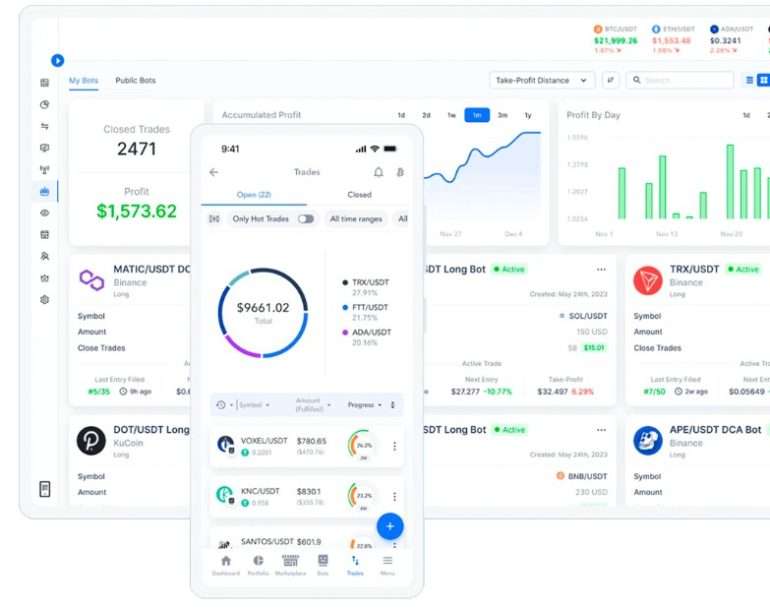bitcoin tax
I dove headfirst into Bitcoin in 2017‚ completely oblivious to the tax implications․ My initial gains were exhilarating‚ but the subsequent tax season was a terrifying ordeal․ I spent countless hours wrestling with unfamiliar tax forms‚ feeling utterly lost and overwhelmed․ The sheer complexity of reporting cryptocurrency transactions nearly drove me to madness! Thankfully‚ I eventually navigated the process‚ but it was a brutal learning experience․
Navigating the Murky Waters of Cryptocurrency Reporting
Let me tell you‚ figuring out how to report my Bitcoin transactions felt like trying to decipher ancient hieroglyphs․ The IRS instructions were dense‚ filled with jargon I didn’t understand․ I initially tried using a generic tax software program‚ but it lacked the specific features needed for crypto․ It couldn’t handle the complexities of calculating gains and losses from multiple trades‚ swaps‚ and even those pesky airdrops I received․ I spent hours scouring online forums‚ desperately searching for answers and feeling increasingly frustrated․ Every article I read seemed to contradict another‚ leaving me more confused than ever․ I even considered hiring a tax professional‚ but the quotes I received were astronomical – a significant chunk of my already taxed Bitcoin profits! I felt completely lost in a sea of conflicting information and technical terms․ I remember one particularly confusing aspect was determining the fair market value of Bitcoin at the time of each transaction․ The price fluctuated wildly‚ making accurate record-keeping a nightmare․ What I needed was a clear‚ step-by-step guide specifically designed for cryptocurrency transactions‚ something that explained the process in plain English‚ not legalese․ After much trial and error‚ I eventually pieced together a system that worked for me‚ but it took far longer than it should have․ The experience was a steep learning curve‚ and I wouldn’t wish it on anyone․
The Costly Mistake of Ignoring the IRS
My friend‚ let’s call him Bartholomew‚ made the classic mistake of ignoring his Bitcoin tax obligations․ He figured‚ “It’s all online‚ they can’t track it․” Boy‚ was he wrong․ Bartholomew initially saw his Bitcoin investments soar‚ and he happily spent his profits without a second thought to Uncle Sam․ He lived the high life for a while‚ buying fancy gadgets and taking lavish vacations․ He completely disregarded the tax implications‚ thinking he could get away with it․ Then came the audit․ The IRS‚ it turns out‚ is quite adept at tracking cryptocurrency transactions․ They eventually caught up with Bartholomew‚ and the consequences were severe․ He faced not only significant back taxes but also hefty penalties and interest charges․ The penalties alone were enough to wipe out a substantial portion of his Bitcoin gains․ His carefree attitude cost him dearly․ It was a harsh lesson learned‚ and he now pays his taxes diligently‚ even consulting a tax professional specializing in cryptocurrency․ Bartholomew’s story serves as a cautionary tale․ Ignoring your tax responsibilities when it comes to cryptocurrency is a very risky gamble‚ one that could easily lead to serious financial repercussions․ Don’t let his experience be yours․ The IRS is watching‚ and they will eventually catch up with those who try to avoid their responsibilities․
Finding My Way Through the Tax Software Jungle
After my initial panic subsided‚ I knew I needed help navigating the complexities of Bitcoin tax reporting․ I started researching tax software specifically designed for cryptocurrency transactions․ The sheer number of options was overwhelming! There was CoinTracker‚ TaxBit‚ and several others‚ each promising a seamless solution․ I tried a couple of free trials․ One program‚ advertised as user-friendly‚ turned out to be incredibly clunky and difficult to navigate․ Its interface was confusing‚ and the instructions were vague․ I spent hours trying to input my transaction history‚ only to end up more frustrated than before․ Another program seemed promising initially‚ but it lacked crucial features for my specific needs‚ like integrating data from multiple exchanges․ Ultimately‚ after much trial and error‚ I settled on a software that‚ while not perfect‚ was the best fit for my situation․ It allowed me to import my transaction history from various exchanges and automatically calculated my capital gains and losses․ Even with the chosen software‚ the process was still time-consuming and required careful attention to detail․ It involved meticulously reviewing every transaction‚ ensuring accuracy to avoid any potential errors․ Learning to use the software effectively added another layer to the already complicated tax process․ It was a steep learning curve‚ but I eventually mastered it․ The experience taught me the importance of thorough research when choosing tax software‚ ensuring compatibility with your specific needs and level of technical expertise․
Lessons Learned⁚ My Bitcoin Tax Checklist
My Bitcoin tax ordeal taught me some invaluable lessons․ First and foremost⁚ meticulous record-keeping is paramount․ I now religiously track every single transaction‚ from the smallest purchase to the largest trade․ I maintain a detailed spreadsheet‚ documenting the date‚ amount‚ and exchange involved for each transaction․ This detailed record-keeping significantly simplifies the tax preparation process․ Secondly‚ understanding the different types of cryptocurrency transactions is crucial․ I initially struggled to differentiate between simple trades and more complex transactions like staking or airdrops․ Now‚ I understand the tax implications of each type of transaction‚ ensuring accurate reporting․ Thirdly‚ I learned the importance of seeking professional help when needed․ While I ultimately managed the process myself‚ I recognize that seeking advice from a tax professional specializing in cryptocurrency could have saved me considerable time and stress․ Finally‚ I’ve developed a comprehensive Bitcoin tax checklist to ensure I never again face such a daunting task․ My checklist includes⁚ (1) Gather all transaction records from every exchange I used․ (2) Categorize transactions (trades‚ staking rewards‚ airdrops‚ etc․)․ (3) Utilize tax software to calculate capital gains and losses․ (4) Review the software’s calculations meticulously․ (5) Prepare and file my tax return accurately and on time․ (6) Keep copies of all relevant documents for future reference․ This checklist provides a structured approach‚ making the process significantly less overwhelming․ Following this checklist ensures I’m prepared for future tax seasons‚ transforming a once-dreaded task into a manageable process․
My Advice to Fellow Crypto Investors
Based on my personal experience‚ my strongest advice to fellow crypto investors is to proactively address the tax implications of your investments․ Don’t make the mistake I initially made of ignoring the IRS; it only leads to more significant problems down the line․ Start by educating yourself on the relevant tax laws․ The IRS guidelines on cryptocurrency taxation can be complex‚ but understanding the basics is crucial․ Consider consulting a tax professional specializing in cryptocurrency; their expertise can be invaluable in navigating the complexities of crypto tax reporting․ I wish I had sought professional guidance earlier; it would have saved me a considerable amount of stress and time․ Beyond professional help‚ meticulous record-keeping is absolutely essential․ From the moment you acquire any cryptocurrency‚ diligently track every transaction‚ including the date‚ amount‚ and exchange․ Use a spreadsheet or dedicated cryptocurrency tax software to maintain a clear and organized record․ This proactive approach will make tax season significantly less stressful and reduce the risk of errors․ Don’t underestimate the importance of staying updated on changes in tax laws․ Cryptocurrency tax regulations are constantly evolving‚ so staying informed is vital․ Subscribe to relevant newsletters‚ follow reputable sources for updates‚ and consider attending workshops or webinars․ Finally‚ remember that timely filing is crucial․ Avoid penalties by filing your tax return by the deadline․ By following these steps‚ you can significantly reduce your tax-related stress and ensure compliance with the law․ Remember‚ proactive planning is key to a smoother and less stressful tax season․




